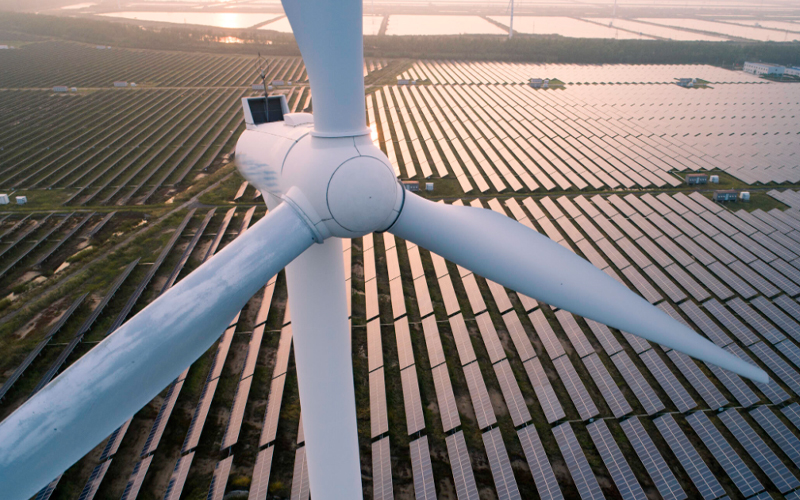“The day when we shall know exactly what electricity is will chronicle an event probably greater, more important than any other recorded in the history of the human race. The time will come when the comfort, the very existence, perhaps, of man will depend on that wonderful agent.” ~ Nikola Tesla
What the renowned electrical engineer propounded in the late 19th century is a reality today. From lighting our homes and putting food on our tables to providing warmth during winters and keeping us cool during scorching summers, the power sector is an indispensable part of modern society. It not only guarantees our fundamental comforts but also empowers industries to manufacture goods and enables businesses and institutions to operate seamlessly.
Access to energy is critical both for survival and development. Sadly, even in today’s age, it is not accessible to all. About one billion people do not have access to it.
Consequently, the division of Sustainable Development Goals (SDGs) of the United Nations has set itself a goal to provide universal access to affordable, dependable, eco-friendly, and modern energy. However, this objective will remain aspirational unless innovative and contemporary technology solutions can surmount the numerous energy-related barriers that afflict emerging markets.
Some challenges include insufficient power generation, infrastructure deficiencies, affordability issues, environmental concerns, complexities of diversifying energy production, and adapting to changing demand patterns.
The transformative power of AI
Given the multitude of challenges confronting the power sector and its ongoing transition towards renewable energy sources, the imperative of embracing cutting-edge technology becomes evident. Artificial intelligence (AI) emerges as a robust solution for transforming every dimension—energy generation, transmission, distribution, or consumption—of the power sector.
Here are some key aspects to consider:
- Grid optimisation: The electrical grid or power grid is a complex network of interconnected power generating, transmitting and distribution systems. It enables the production and distribution of electrical energy from power plants to consumers. AI can enhance the efficiency and reliability of energy grids by making them smart. AI algorithms analyse data from various sources, such as sensors and meters, to optimise energy distribution, reduce energy losses, and minimise downtime. This translates to a more stable and resilient power network.
- Predictive maintenance: AI-driven predictive maintenance systems can monitor and analyse data from power generation and distribution equipment in real-time. By identifying potential issues before they lead to breakdowns, AI helps reduce maintenance costs and prevent power outages.
- Renewable energy integration: AI can forecast renewable energy production based on weather patterns, enabling grid operators to manage the variability of these sources more effectively.
- Energy storage: AI is instrumental in optimising energy storage systems, such as batteries. AI algorithms can determine when to charge and discharge batteries to maximise their lifespan and efficiency, supporting the integration of renewable energy into the grid.
- Demand response: AI-powered demand response systems analyse real-time data to adjust energy consumption in response to grid conditions and pricing. This enables consumers to reduce energy costs during peak demand periods.
- Energy efficiency: AI can be applied in buildings and industrial processes to optimise energy consumption. For example, AI-driven HVAC systems can adjust heating and cooling based on occupancy and weather conditions, reducing energy waste.
- Energy trading: AI algorithms can facilitate energy trading in decentralised energy markets. This allows consumers with excess energy from solar panels, for instance, to sell their surplus back to the grid or directly to other consumers.
- Environmental impact: AI can help power companies reduce their environmental footprint. By optimising energy generation and distribution, AI can lead to reduced emissions and more sustainable energy practices.
- Cybersecurity: As energy infrastructure becomes more connected, AI-enabled cybersecurity is gaining traction. It can detect and respond to threats in real-time, safeguarding critical energy infrastructure from cyberattacks.
- Research and development: AI is accelerating research in energy-related fields, including materials science and energy storage technologies. AI-driven simulations and data analysis are helping scientists discover more efficient and sustainable energy solutions.
Powering the future
The synergy between AI and the power sector represents a promising and transformative partnership. AI's capacity to harness data, optimise operations, and enhance decision-making is revolutionising energy generation, distribution, and consumption. From predictive maintenance to grid management, AI is driving efficiency, sustainability, and reliability in the power industry.
As the world seeks to address environmental challenges and adapt to evolving energy needs, AI stands as a powerful tool, offering innovative solutions and paving the way toward a smarter, greener, and more resilient power sector. The future of energy is undoubtedly intertwined with the possibilities unlocked by AI.
* For organizations on the digital transformation journey, agility is key in responding to a rapidly changing technology and business landscape. Now more than ever, it is crucial to deliver and exceed on organizational expectations with a robust digital mindset backed by innovation. Enabling businesses to sense, learn, respond, and evolve like a living organism, will be imperative for business excellence going forward. A comprehensive, yet modular suite of services is doing exactly that. Equipping organizations with intuitive decision-making automatically at scale, actionable insights based on real-time solutions, anytime/anywhere experience, and in-depth data visibility across functions leading to hyper-productivity, Live Enterprise is building connected organizations that are innovating collaboratively for the future.







